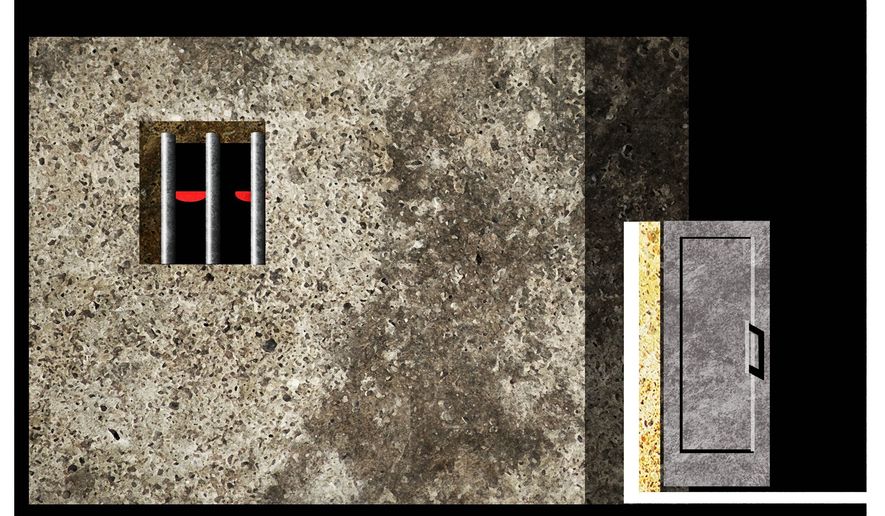OPINION:
Demonstrations over the past week in Shia-dominated southern Iraq have resulted in over 100 killed and 4,000 wounded according to the Human Rights Commission. The victims are primarily demonstrators, most in early 20s and younger who were barely in school when the Baathist government was toppled by the U.S.-led coalition. What could have been a bright future within an oil rich country was stolen from them.
Religious extremists in Tehran had no intention of allowing a progressive democracy immediately across its western border. The main accomplishment of the Bush administration was the total destruction of the Middle East balance of power.
From the very beginning, the United States pumped billions of dollars into building up Iraq and its critical infrastructure. Officials at every level of the Iraqi government continually skimmed the incoming financial investments, resulting in pennies on the dollar making it to the intended projects and for the benefit of the Iraqi people.
The worst of these culprits was former Prime Minister Nouri al-Maliki who just prior to the fall of Saddam was living in exile in Syria, making his living as a street vendor. Five years later, he was buying hotels and apartment towers in Damascus and the Emirates.
This massive corruption that has denied the Iraqi people employment, housing, electricity, clean water, and a secure environment has not been lost on the Iraqi youth. Iranian domination over the Iraqi government also has not gone unnoticed.
These protests and demonstrations are not involving the Sunni north regions. The Sunni survivors are still recovering from the Islamic State in Iraq and Syria (ISIS) invasion that decimated its cities and populations.
Like Iran, people of southern Iraq are Shias. That’s where the similarity ends. Iraqis are Arabs, not Persians. Now the young generation is making it clear they are not puppets of the Iranian government. For good reason, their parents fear the Iranian government. All Iraqis who fail in loyalty to Iran are subject to retaliation, which often includes execution by various means.
This past week the youth have risen against their oppressors. Government-ordered shooting into the crowds and arrests of the demonstrators have intensified the situation. Fifty-one public offices and eight political party headquarters have been set on fire.
Tehran has been trying to redirect the protestors’ anger away from the corruption and Iranian domination of the Iraqi government. Iran’s growing desperation is seen in its recent claim that American and Israeli governments are behind the demonstrations and growing violence. In even further desperation, Ayatollah Khamenei’s close ally and head of Iran’s hardline Kayhan newspaper, Hossein Shariatmadari, has called on Iraqi youth to storm the U.S. Embassy in Baghdad.
In 1979 revolutionary leader Ayatollah Khomeini incited Iranian youth to overrun the American embassy In Tehran. Khomeini then used the excitement it created to turn on Iranian opposition to his fundamentalist movement. The greatest victims of the Revolution were and remain Iranian citizens.
Four times in the past decade, Iranian citizens have risen up in opposition to the government. A stimulus from Shia-dominated Iraq could easily become the catapult that results in bringing down both corrupt governments. Iraq and Iran were spared from Arab Spring. What they could now be facing is Fundamentalist Autumn.
To keep the movement from crossing into Iran, two border crossings with Iraq have been closed. To control the demonstrations, Iran is forcing the Iraqi government to replace Iraqi military with Popular Mobilization Units (PMU). This will result in even further violence. Wearing Iraqi military uniforms, the militias will have no hesitation to operate firing squads against the protestors.
A serious concern for the United States is those same militia members, in civilian clothes and claiming to be Iraqi students, fulfilling Tehran’s desire to storm the Baghdad Embassy.
United Nations Secretary General for Iraq, Jeanine Hennis-Plasschaert, has identified the demonstrations as “legitimate” and has called upon the Iraqi government to “revive public trust.” Europe and the United States need to follow her example and bring political pressure to avoid further violence against the protesters and push for Iraqi government reform.
The demonstrators are willing to stand for what they know to be true. They must not be sacrificed while the West sits idle.
• Wes Martin, a retired U.S. Army colonel, served as the senior antiterrorism officer for all coalition forces in Iraq.




Please read our comment policy before commenting.